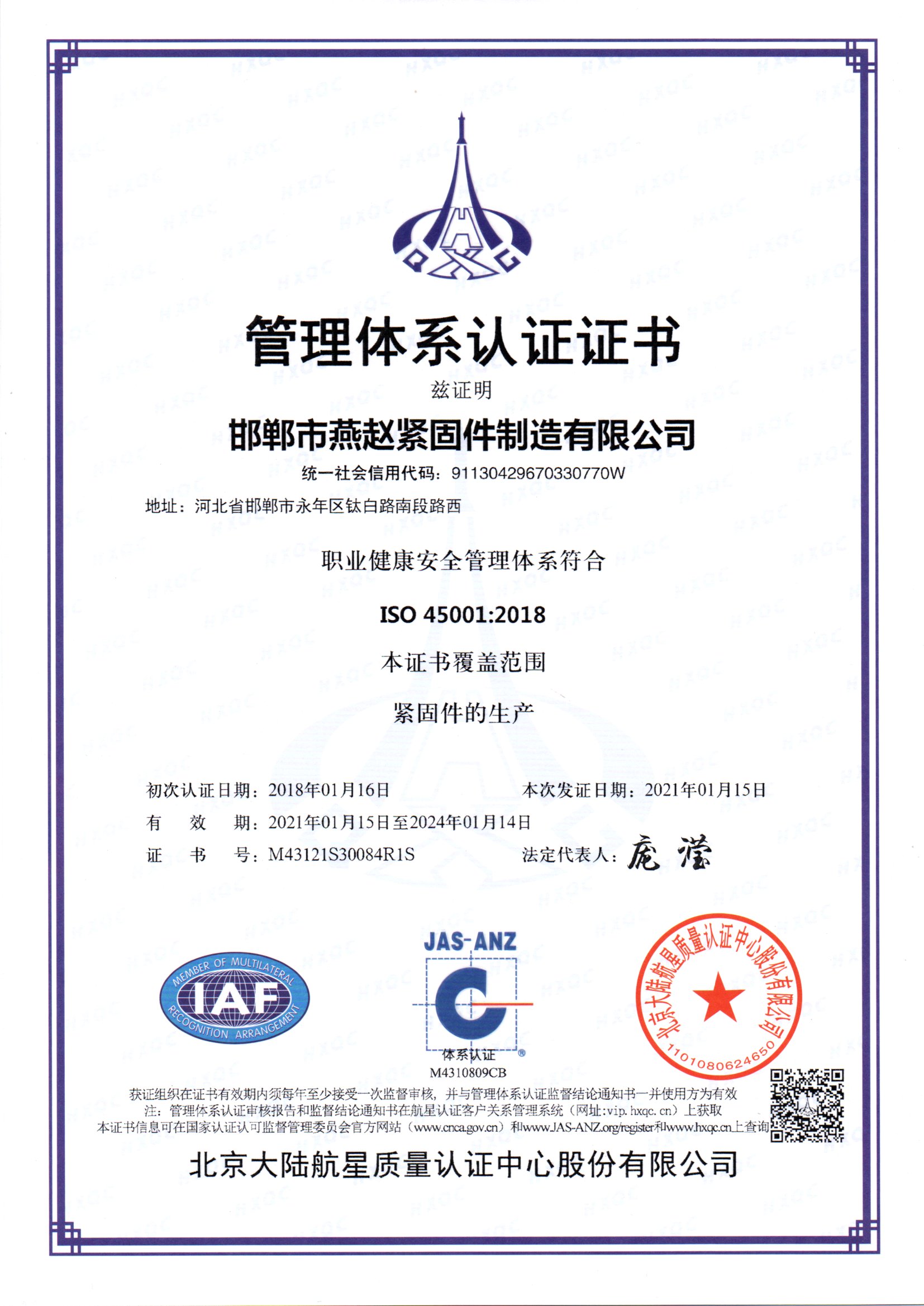Dacromet Coated Hex Bolts Manufacturer for Enhanced Corrosion Resistance and Durability
Окт . 22, 2024 00:31 Back to list
Dacromet Coated Hex Bolts Manufacturer for Enhanced Corrosion Resistance and Durability
The Rise of Dacromet Coated Hex Bolts A Factory Perspective
In the realm of fasteners, the choice of materials and coatings often determines the longevity and performance of products in various applications. One such development that has gained significant attention in recent years is the Dacromet coating process, particularly in the context of hex bolts. As industries evolve, so does the demand for durable and corrosion-resistant components, and Dacromet-coated hex bolts have established themselves as a preferred choice across many sectors. This article delves into the intricacies of producing Dacromet hex bolts, shedding light on factory operations, the coating process, and the competitive edge these components provide.
Understanding Dacromet Coating
Dacromet, a zinc-aluminum flake coating, is designed to provide superior corrosion resistance compared to traditional electroplated zinc coatings. The coating process involves the application of a water-based suspension of zinc and aluminum flakes, which, when cured, creates a tough and resilient layer. This layer offers not only corrosion resistance but also excellent lubrication properties, making Dacromet hex bolts suitable for various applications, including automotive, marine, and industrial sectors.
The Manufacturing Process
The production of Dacromet-coated hex bolts begins with the raw materials. High-quality steel is the foundation for these fasteners, selected for its strength and ductility. The initial step involves forming the hex bolts, which includes cold heading, threading, and any additional machining processes necessary to meet precise specifications.
Once the hex bolts are manufactured, they undergo a rigorous cleaning process to ensure that any oils, dirt, or residues are removed. This step is crucial, as it directly affects the adhesion of the Dacromet coating. Factories utilize methods such as alkaline cleaning, acid pickling, or shot blasting to achieve an immaculate surface.
After cleaning, the bolts are immersed in the Dacromet coating solution. This part of the process requires skilled technicians and meticulously calibrated equipment to ensure uniform application. The bolts are then subjected to a curing process, typically involving high-temperature ovens, where the coating fuses to the substrate. This curing not only enhances the adhesion but also optimizes the protective qualities of the Dacromet layer.
dacromet hex bolt factory

Quality Control and Testing
In a factory setting, quality control is paramount. Dacromet-coated hex bolts undergo various tests to ensure they meet industry standards and customer specifications. These tests include corrosion resistance trials, where the bolts are exposed to saline solutions for extended periods to simulate real-world conditions. Additionally, mechanical properties such as tensile strength and shear resistance are rigorously evaluated.
Employing advanced technology and equipment, factories often utilize Automated Optical Inspection (AOI) systems to detect any inconsistencies in the coating. This level of scrutiny ensures that only the highest quality products make it to market, reinforcing the manufacturer's reputation in a competitive landscape.
Benefits of Dacromet Coating
The advantages of Dacromet-coated hex bolts extend beyond just corrosion resistance. Due to their remarkable lubrication properties, these bolts often require less torque during installation, reducing the risk of damage to components. This feature is particularly beneficial in applications where precision is critical. Furthermore, Dacromet coatings are highly resistant to wear and chip, ensuring that the structural integrity of the bolts remains uncompromised even in harsh environments.
Conclusion
As industries continue to demand higher performance from their components, the production and use of Dacromet-coated hex bolts represent a significant advancement in fastener technology. Factories are responding to this need by refining their manufacturing processes, enhancing quality control measures, and committing to sustainability through the utilization of water-based coatings. The future of fasteners looks promising, with Dacromet coatings at the forefront of innovation, providing industries with reliable, durable, and efficient solutions for their fastening needs. The growth of this niche market underscores the importance of continuous improvement and adaptation in manufacturing practices, ensuring that producers not only meet but exceed customer expectations in an ever-evolving marketplace.
Latest news
-
Reliable Axle Nuts Supplier | High-Quality Automotive Parts
NewsAug.19,2025
-
Premium Wire Bolts Suppliers | Durable & Reliable Fasteners
NewsAug.18,2025
-
Leading Metric Wood Screw Companies & Manufacturers
NewsAug.17,2025
-
Top Wire Bolts Suppliers - Quality & Durable Fasteners
NewsAug.15,2025
-
Trusted Wire Bolts Company | Quality Fasteners Supplier
NewsAug.14,2025
-
Reliable Wire Bolts Suppliers & Manufacturers for Global Needs
NewsAug.13,2025
